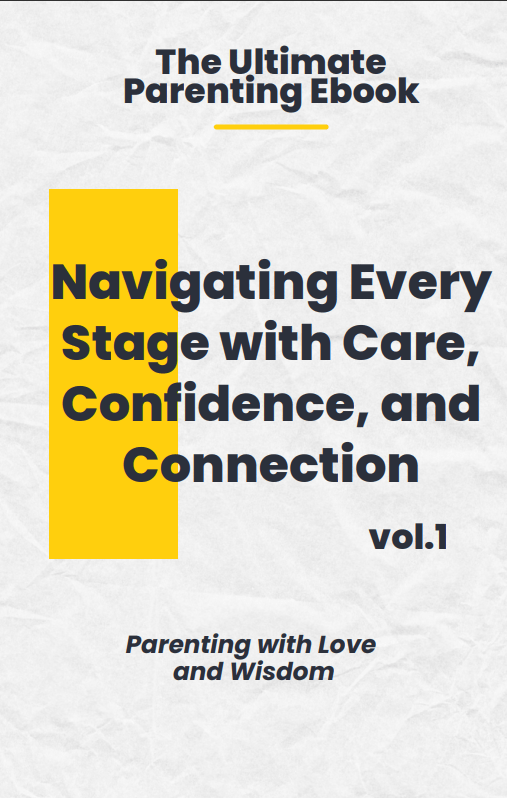Empower your children for success with an authoritative parenting style. From setting clear expectations to fostering emotional intelligence, find out how to raise confident leaders in our comprehensive guide.

Ever wondered what sets apart future leaders from the crowd? It’s not just about intelligence or charisma; it’s about the foundation laid in childhood. Enter the concept of authoritative parenting style. Unlike the rigid authoritarian approach or the overly permissive style, authoritative parenting strikes a balance, blending warmth with clear boundaries. Today, we’ll explore how this parenting approach molds children into tomorrow’s leaders. By nurturing confidence and independence, encouraging critical thinking and problem-solving skills, and instilling values of empathy and respect, authoritative parenting sets the stage for success. By setting high expectations, parents instill ambition and drive in their children, guiding them toward excellence in behavior, academics, and personal development. This approach fosters a sense of purpose and determination in children, laying the foundation for future leadership roles.
Table of Contents
ToggleUnderstanding Authoritative Parenting Style
As a parent, understanding different parenting styles is crucial for shaping your child’s future. Let’s delve into the concept of authoritative parenting style, a balanced approach that fosters healthy development and prepares children for success.
Define Authoritative Parenting Style
Authoritative parenting style is characterized by warmth, responsiveness, and clear boundaries. It involves nurturing a supportive environment while maintaining expectations and rules to guide children effectively.
Key Characteristics
Warmth: Authoritative parents show love and affection towards their children, creating a secure emotional bond.
Responsiveness: They listen to their children’s needs and feelings, providing guidance and support.
Clear Boundaries: Authoritative parents set clear rules and expectations, promoting discipline and responsibility.
How It Differs from Other Parenting Styles
| Parenting Style | Characteristics |
|---|---|
| Authoritative | Balanced approach with warmth, responsiveness, and boundaries |
| Authoritarian | Strict rules with little room for flexibility or negotiation |
| Permissive | Lax rules and high levels of warmth, but a lack of structure |
Authoritative parenting stands out for its combination of warmth and structure, creating an environment where children feel supported yet guided. Unlike authoritarian parenting, which can be too controlling, or permissive parenting, which may lack discipline, authoritative parenting strikes a healthy balance that fosters independence and responsibility in children.
What Should Parents Do?
1. Encouraging Independence
Contrary to permissive parenting, where boundaries are loose, authoritative parenting encourages independence within a supportive framework. Children are given opportunities to make decisions and take ownership of their actions, fostering self-reliance and confidence. This approach nurtures a sense of responsibility and initiative in children, preparing them to navigate the complexities of the world with resilience and adaptability. As a result, children raised under authoritative parenting are more likely to emerge as self-assured and capable leaders in their communities.
2. Promoting Effective Communication
Effective communication is a cornerstone of good parenting skills and a hallmark of authoritative parenting. Unlike avoidant parents who may shy away from difficult conversations, authoritative parents actively promote open dialogue. By teaching children how to articulate their thoughts and ideas effectively, parents equip them with essential skills for leadership roles. Clear and concise communication fosters mutual understanding and respect, laying the groundwork for collaborative problem-solving and innovation. As a result, children raised under authoritative parenting excel in building meaningful connections and inspiring others through their words and actions.
3. Teaching Problem-Solving Skills
In the realm of parenting concerns, fostering problem-solving skills ranks high on the list of priorities for authoritative parents. Unlike passive parenting, which may overlook opportunities for growth, authoritative parents actively guide their children through challenges. By encouraging them to analyze situations critically and explore various solutions, parents nurture their children’s ability to think creatively and adapt to changing circumstances. This approach instills a sense of resilience and resourcefulness in children, empowering them to overcome obstacles and emerge stronger than before.
4. Providing a Supportive Environment
Central to the philosophy of authoritative parenting is the creation of a supportive environment where children feel valued and empowered. Unlike parenting double standards that may undermine children’s confidence, authoritative parents offer consistent warmth, support, and encouragement. This nurturing environment fosters a sense of belonging and security in children, enabling them to explore their interests and pursue their passions with confidence. By providing a safe space for growth and exploration, authoritative parents lay the groundwork for their children’s success in both personal and professional endeavors.
5. Cultivating Emotional Intelligence
In the landscape of new-age parenting styles, emphasis on emotional intelligence sets authoritative parenting apart. Unlike parents with anger issues who may struggle to regulate their emotions, authoritative parents prioritize understanding and managing emotions effectively. By modeling empathy and compassion, parents teach their children to navigate the complexities of human interaction with grace and integrity. This emphasis on emotional intelligence cultivates strong interpersonal skills and resilience, essential qualities for effective leadership in today’s interconnected world.
6. Building Resilience
One of the greatest gifts of authoritative parenting is the gift of resilience. Unlike parenting challenges that may seem insurmountable, authoritative parents equip their children with the tools to bounce back from setbacks and adversity. By promoting resilience and coping skills, parents teach their children to embrace failure as an opportunity for growth and learning. This mindset empowers children to face challenges with confidence and determination, knowing that they have the support and guidance they need to overcome any obstacle on their path to success.
7. Instilling Values and Ethics
At the heart of authoritative parenting lies a commitment to instilling values and ethics in children. Unlike parenting double standards that may confuse children about right and wrong, authoritative parents provide clear guidance on integrity, responsibility, and ethical decision-making. By teaching children to uphold these principles in their actions and interactions, parents lay the foundation for principled leadership. This emphasis on values and ethics not only shapes children’s character but also influences the way they navigate the world and inspire others through their actions.
8. Fostering Collaboration and Teamwork
In the realm of parenting challenges, fostering collaboration and teamwork is essential for raising future leaders. Unlike authoritarian parenting, which may prioritize obedience over cooperation, authoritative parents encourage their children to work effectively with others. By promoting cooperation and leadership in group settings, parents teach their children the importance of collaboration, compromise, and collective problem-solving. This emphasis on teamwork not only strengthens children’s interpersonal skills but also prepares them to thrive in diverse and dynamic environments, where collaboration is key to success.
9. Supporting Personal Growth and Development
Above all, authoritative parenting is about supporting the personal growth and development of children. Unlike avoidant parents who may overlook their children’s needs, authoritative parents actively nurture their potential, empowering them to pursue their goals with confidence. By providing a combination of high expectations, support, and guidance, parents create an environment where children feel valued, encouraged, and capable of achieving their dreams. This holistic approach to parenting not only shapes children into future leaders but also fosters a sense of purpose and fulfillment in their lives.
Conclusion
In conclusion, the impact of authoritative parenting style on shaping future leaders cannot be overstated. By instilling ambition and drive through high expectations, providing a supportive environment, and promoting effective communication, authoritative parents empower their children to excel in various aspects of life. Encouraging independence and nurturing problem-solving skills equips children with the resilience and confidence needed to overcome challenges and emerge as capable leaders. Moreover, by emphasizing emotional intelligence, instilling values, and fostering collaboration, authoritative parenting lays a strong foundation for principled leadership and success. Embracing this approach nurtures the potential of children, guiding them toward a future filled with purpose and fulfillment.
You may also interested in : From Chaos to Calm: Positive Parenting Techniques That Work Wonders




